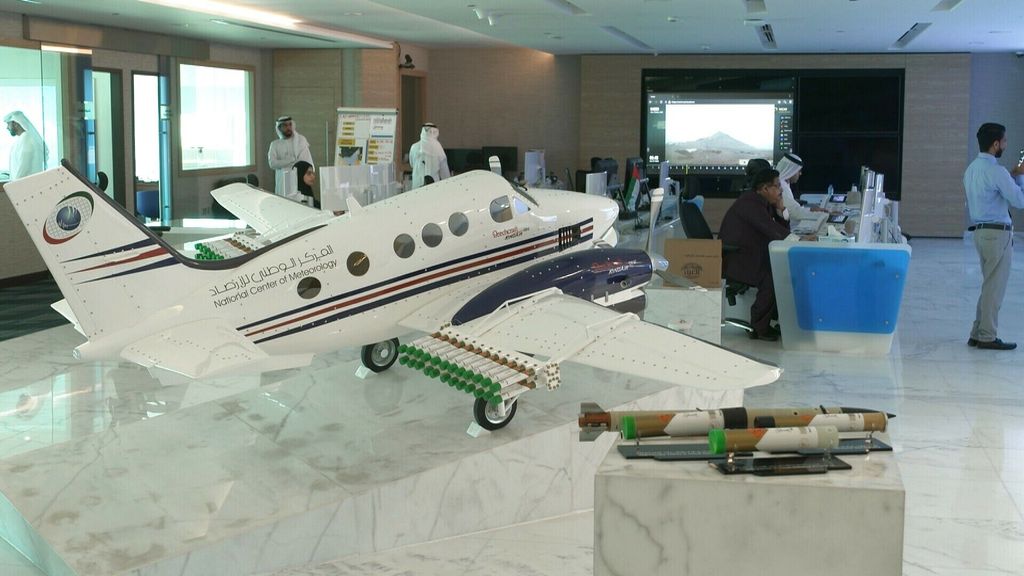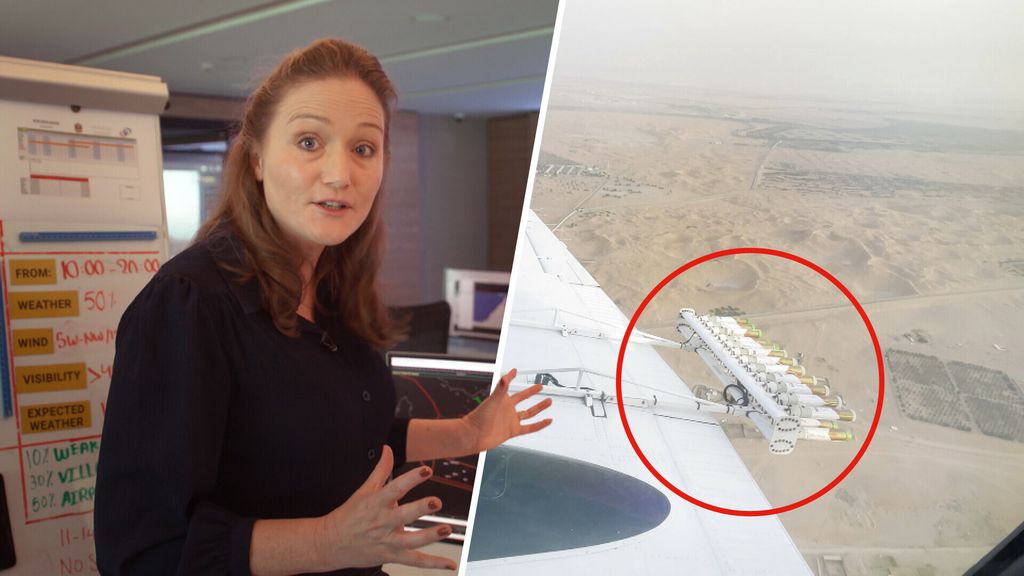
NOS
NOS . News•
Attempts to make it rain are as old as humanity. With rain dances, by asking for help from the gods or by means of offerings. In Abu Dhabi, they have another way to force rain: rain clouds or modify the cloud. Chemicals or salt particles are released into a cloud.
In the fight against drought and climate change, they have been searching for cloud modification in the UAE for some time. Thanks to large research budgets and international collaborations, they are now a frontrunner in the region with their ambitious program at the Center for Meteorology (NCM) in Abu Dhabi.
Reporter Daisy Mohr visited the center in Abu Dhabi and went to cloud photography with pilot Ahmed Al Jabri.

Searching for rain in the desert: this is how cloud seeding works
This technique is not new, but it is difficult scientifically to determine how well it works. “You can never do a control study,” says Hermann Rauschenberg, professor of atmospheric research at TU Delft. “So who is to say that the rain would not have started without intervention?”
Pier Siebesma, an associate professor at Delft, says the impact of cloud modification should not be overstated. “Israel did it for years, but it stopped because it wasn’t getting enough.”
However, experts do not doubt Abu Dhabi. “Our recent research shows that there is an increase in precipitation due to cloud modification. Under normal conditions it is 10 to 15 percent and under optimal conditions 23 to 25 percent,” said researcher Ahmed Kamali. This is a significant increase for a desert country in the Middle East.
Because of global warming, more and more countries are interested in techniques and technologies for controlling the weather a little bit. In Abu Dhabi, they are not the only ones working on cloud mods. Dozens of countries are trying it, including China, Russia, India, and the United States. China is going far in this regard. This country wants to have a complete system in place by 2025 to effectively influence the weather.
In many cases, the already heavy rainfall has led to disagreements between neighboring countries. One accuses the other of stealing the rain. Iran, Israel, India and China were discussing it, and Saudi Arabia and Oman were unhappy with the Emirates.
Because if Abu Dhabi adjusts the exaggerated clouds so that it rains, there will be nothing left for the neighboring countries. “This is a point of justified criticism,” Professor Rauschenberg said. “This rain only falls once, so if you manipulate that cloud so that the rain falls on your area before the clouds reach the neighbors, you steal the rain.”
In Abu Dhabi, they are not swayed by criticism. There they believe that you can not steal the rain. “You don’t steal anyone’s clouds, you don’t steal rain, you can’t do that,” said Al Kamali.
geological or climatic engineering
In the future, we may be able to make more adjustments to the weather and climate. Then we talk about geoengineering or climate engineering. By doing so, you can adapt the Earth’s natural systems to combat global warming. “This goes much further than just rain,” explains Professor Siebesma. “This will cool the Earth on a global scale by, for example, blocking or reflecting sunlight.”
But there are many flaws. “First of all, good international research on these methods should be done first,” warns Siebesma. “We have no idea what effect that would have on the planet. On long-term rainfall, drought, air flow and temperature. But people want to start using it, so we have to investigate what the effects are.”
rain first
In Abu Dhabi they focus first on rain clouds They are determined to continue. They have little doubt that this will eventually have a positive impact on the region. Pilot Ahmed Al-Jabri: “We don’t expect immediate results. This is an important project for the future, the next fifty to a hundred years. We may already be able to reap the benefits, but I’m thinking mainly about the future of my” children and their grandchildren. I wish a greener area for future generations.”

“Infuriatingly humble social media buff. Twitter advocate. Writer. Internet nerd.”








